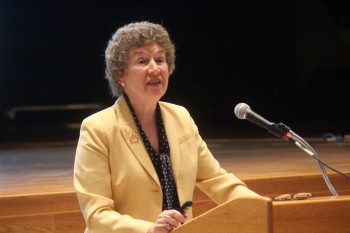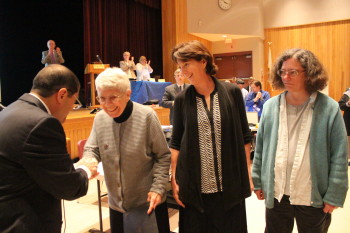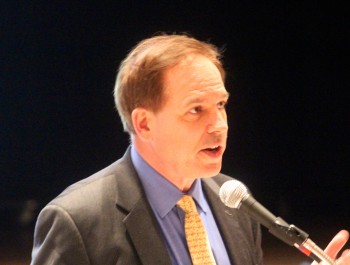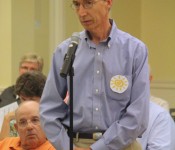Photo: Belmont Center.
(Note: This letter was originally sent to the Belmont Board of Selectmen.)
I am disturbed and outraged to learn that Belmont Center Reconstruction Plan A was overturned at the last minute for Plan B, decreasing the size of the green space and surrounding it with traffic, just because of a small group of opponents. This group did not show up or speak out at all the many public meetings over several years.
The [Board of Selectmen] meeting on May 28th was just advertised as a discussion of beautification and conflicted with several other important town meetings that evening such as The annual
meeting of the League of Women Voters, and the forum on Criminal Justice with our State Sen. Will Brownsberger and our State Rep. Dave Rogers (I managed to attend both of these). Regardless, one meeting should not have tossed out years of planning and substituted an alternative plan without proper notice and comment period.
Over the last several years, I attended many meetings and was generally pleased with the majority of the details for Reconstruction of Belmont Center. But I was even more pleased with the process. Lots of comments were taken into consideration, and the resulting plan, Plan A, was a really good compromise of all the important features that everyone wanted. I am particularly in favor of the large, pedestrian-friendly, green space which Belmont Center has always sorely missed.
This last minute change from a plan that was already approved and supported by the larger community is completely inappropriate and does not represent the Belmont community as a whole. Town Meeting approved money in the fall for the Reconstruction with the plan that included much more green space; not a small island of token green space that is hard to utilize, similar to the current island of poorly utilized greenery.
If a change is to be made at this point, a public process must be offered once again; no last minute substitutions to appease one small vocal minority. If this is not done correctly, the whole process is tainted and will be very difficult for the Selectmen to gain the confidence and monetary support of the town again.
Bonnie Friedman
Town Meeting Member
Precinct 3



